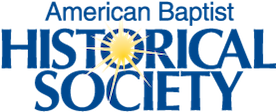Leland, John Papers
Dates
- Creation: 1787
Creator
- Leland, John, 1754-1841 (Person)
Conditions Governing Access
The collection is open for research. Unpublished manuscripts are protected by copyright. Permission to publish, quote, or reproduce must be secured from the repository and copyright holder. Staff may refuse copying of fragile or at-risk materials.
Materials may be accessed by request at the American Baptist Historical Society. For more information on accessing collections or obtaining copies, visit http://abhsarchives.org.
Biographical / Historical
Baptist minister John Leland played a key role in the struggle for religious liberty in both Virginia and Connecticut.
Raised in New England, Leland traveled to Virginia in 1775 to spread the Baptist message just as tensions between the established Anglican Church and the Baptists were mounting. Leland's experience witnessing the persecution and imprisonment of his fellow Baptist preachers -- in addition to being threatened with a gun himself -- hardened his view that church and state must be separate for individuals to be free to follow their conscience in matters of religion. "Every man must give an account of himself to God, and therefore every man ought to be at liberty to serve God in a way that he can best reconcile to his conscience. If government can answer for individuals at the day of judgment, let men be controlled by it in religious matters; otherwise, let men be free," he wrote.
Demanding freedom of religion, Leland became a key player in the so-called Virginia experience, where he found strong allies in James Madison and Thomas Jefferson. It was an unlikely alliance. Jefferson was skeptical of traditional Christianity; Leland was a fervent evangelical intent on spreading the "Good News" of the Gospel. Yet Leland, Madison and Jefferson shared a passionate belief in religious liberty.
They found common ground for different reasons. Like the Puritan dissident Roger Williams, Leland was convinced that the church must be protected from interference and incursions of the state; he opposed any form of state support of religion. Jefferson believed that it was the state that needed protection from overzealous clergymen and organized religious groups.
Leland became a pivotal supporter of James Madison and helped win Baptist support for Madison's election to the First Congress, where Madison drafted what would become the First Amendment of the Bill of Rights.
In 1791, Leland moved back to New England, where the Congregational Church still maintained its place as the established, preferred church in both Massachusetts and Connecticut. Leland fought to end religious establishment in both states and saw Connecticut end establishment in 1818 and Massachusetts in 1833.
An ardent supporter of Thomas Jefferson, Leland became famous for his media-savvy strategy to signal the Baptists' support of the newly elected president in 1801: the gift of a giant wheel of cheese. Reportedly made from the milk of 900 Republican cows, the cheese measured 4 feet in diameter, 13 feet in circumference, and weighed 1,235 pounds. Emblazoned on its red crust was Jefferson's favorite motto: "Rebellion to tyrants is obedience to God." As the giant cheese made the monthlong journey from western Massachusetts to Washington, D. C., pundits lampooned, ridiculed and celebrated the "mammoth cheese." On Jan. 1, 1802, Jefferson welcomed Leland and his flamboyant gift into White House. Two days later, Leland delivered the Sunday sermon in the House of Representatives, with the president in attendance.
Leland's belief in full separation of church and state would lead him to denounce the notion of the United States as a Christian nation. In A Chronicle of His Time in Virginia, Leland wrote: "The notion of a Christian commonwealth should be exploded forever. ... Government should protect every man in thinking and speaking freely, and see that one does not abuse another. The liberty I contend for is more than toleration. The very idea of toleration is despicable; it supposes that some have a pre-eminence above the rest to grant indulgence, whereas all should be equally free, Jews, Turks, Pagans and Christians."
Accessed 2019-2-4 from http://www.pbs.org/godinamerica/people/john-leland.html
Full Extent
1 Sheets (1 letter) : Fragile
Language of Materials
English
General
One letter to the Philadelphia Baptist Association, original.
Uniform Title
- Language of description
- Undetermined
- Script of description
- Code for undetermined script
Repository Details
Part of the American Baptist Historical Society Repository
3001 Mercer University Drive
Atlanta GA 30341-4115 USA
678.547.6680
678.547.6682 (Fax)
ABHSoffice@ABHSarchives.org
